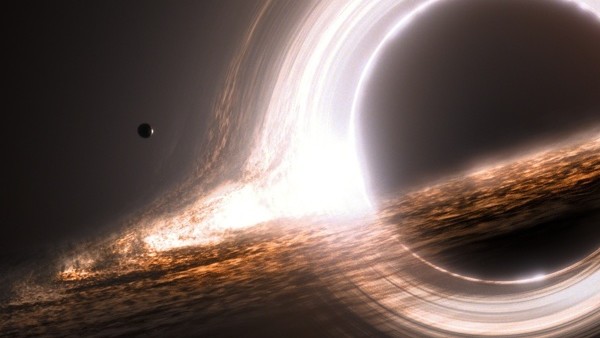8 'Yeah, Science!' Moments In Film And TV
3. The Black Hole Science - Interstellar

Interstellar might go a bit doolally towards the end, but there's a reason why it was hailed for its scientific accuracy. Whilst there are obviously still healthy helpings of artistic licence to keep the plot turning over, the scientific concepts woven throughout it are firmly rooted in the realm of facts.
Relativity and time dilation play a major role in the plot, with one hour on the surface of Miller's planet lasting seven years back on Earth. It's the kind of dilation you expect that kind of dilation at the event horizon of a black hole, as relativity tells us that time will move slowly in the presence of a gravitational field.
Speaking of black holes, Gargantua is well known as the crowning glory of the movie. It has been hailed as one of the most scientifically accurate depictions of a black hole to date, with the accretion disk appearing to wrap over and around the black hole due to gravitational lensing.
Unfortunately, Nolan loses points here because the decision was made to make the black hole intentionally less accurate, by omitting a colour gradient caused by the Doppler effect, and the fact that a black hole with the spin capable of producing the time dilation effect in the movie would probably just be a psychedelic jumbled mess of distorted images. These were left out of the film as it was thought that people would find it too confusing - way to underestimate your audience there, Nolan, I want my jumbled mess of spacetime.